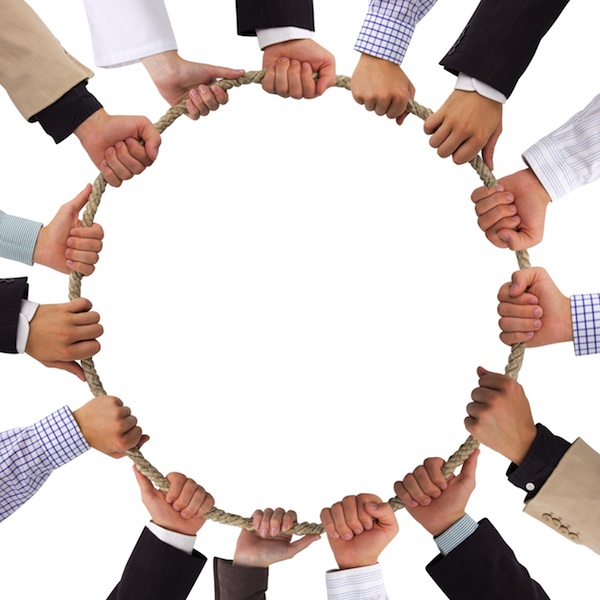As it has become increasingly common to interact with people via SNS (Social Network Services), new ‘virtual’ relationships have developed. However, the question of whether you have at least one real friend among hundreds of contacts in your SNS friend list is worth keeping in mind, especially as the answer might be ‘no’. For this reason, there is a growing number of people who have resolved to undertake a ‘relationship diet’. It has been reported that 85% of Koreans feel tired of their relationships. So, what is a ‘relationship diet’ and what might its implications be?
 |
What is a ‘Relationship Diet’?
A relationship diet refers to the action of intentionally giving up on or finishing a human relationship because of the stress caused by it or other day-to-day commitments that make the relationship unsustainable. Yongsub Kim, a consultant and columnist studying trend insight and business, said that relationship diets occur not only online but also offline in our daily lives. He added that it can be regarded as a positive phenomenon among the youth in contrast to the past overemphasis on school relationships and and local kinship.
 |
How Can We Undertake a ‘Relationship Diet’?
People seem to decide to undertake a relationship diet when the stress from human relationships becomes too intense, as indicated in a survey conducted by the online recruitment site Incruit. Incruit asked respondents if they have given up on or finished any relationships intentionally. 46% of them answered ‘yes’ and 18% of them answered ‘I wanted to but couldn’t’. So, how might one undertake a relationship diet?
- Tissue Relationships
‘Tissue relationship’ is a new term referring to one-time relationships that can be used when needed and then discarded when they become redundant, like a tissue. For example, some people might do a club activity with others on the weekend, but never contact one another outside of the club’s activities. Recently, ‘lunch-ting’ has become popular among office workers, which is the combination of lunch with a meeting. Lunch-ting is preferred because it takes only 1-2 hours during lunch time, which for many is preferable to meeting after regular work hours. ‘Anonymous chatting’ is another form of tissue relationship. It has gained popularity since it was added as a new function in various SNS and mobile messengers. One user, an office worker in her thirties, said, “I’m sick of talking and smiling to suit others forcefully”, and added, “I like anonymous chatting because I don’t need to worry about the company, my position, or age”. Another user, a housewife in her forties, said, “I’ve never met any of those who I chatted with so I feel free to talk to them about things that I couldn’t share with those who I know in my real life”, and added, “I think it’s way better than meaningless consolation from people who know me in person”. So, tissue relationships can be defined as a new relationships that relieve you from loneliness and the stress of personal connections.
- Taking a Rest from SNS
One way of beginning a relationship diet is by taking a rest from SNS. An increasing number of people are deactivating their SNS or messenger accounts like Facebook and Kakaotalk because there are many strangers added in their friend lists. There are people who even ‘reset’ their relationships by removing phone numbers of those who don’t reply to their messages.
 |
Why Do We Undertake Relationship Diets?
- The Root Cause: Stress from Human Relationships
Stress from human relationships is definitely the root cause of the increase in the number of those who prefer tissue relationships and anonymous chatting. According to the survey conducted by Incruit, 1760 of 4191 respondents (42%) answered ‘yes’ when asked if they have ever felt stressed by human relationships. Also, 42% of respondents said ‘yes’ when asked if they have ever forcefully continued a relationship for a particular purpose. It shows that 40% of adults (male and female) have continued their relationships perfunctorily under stress.
- Easily and Infinitely Increased Relationships
As the formation of relationships is so easy and fast on SNS, more and more people are feeling the necessity of greater selection and concentration in their relationships. According to a survey conducted by the Dong-A Daily News and Macromill Embrain, a leading researching company, 62% of respondents (1,000 male and female adults in their twenties) answered that they have more than 100 friends on Facebook, and 4.7% of them said that they have more than 500 friends. It explains how easy it is to form hundreds of relationships with an SNS account. However, skepticism and fatigue with human relationships exist behind many of these SNS connections. The survey asked respondents if they feel skepticism towards their relationships on SNS, and 41.4% said yes. Also, 73.8% of respondents admitted that they wanted to stop making friends online. Hyunju Kwak, a professor of psychology at Seoul National University, said “People in fact feel lonelier, because the number of friends on SNS is just a number and does not reflect actual relationships”, and added that “Lately, the youth (those in their 20s and 30s) tend to place more importance on the depth of relationships rather than on the quantity of them”.
The Side Effects of Relationship Diets – Human Relationship Reset Syndrome
Human relationship reset syndrome is the phenomenon of blocking a relationship by deactivating one’s SNS account and changing one’s phone number while letting no one know about the new phone number. Excessive relationship diets can isolate young people from everything, but in spite of this, in Japan the number of the young people experiencing human relationship reset syndrome is increasing. This phenomenon should cause concern, because isolation itself can cause anger or a ‘victim mentality’ which can lead to social problems like crime.
The Inha Times had an interview with Taeik Yoon, a professor teaching 'Personal Relationship and Career Coaching' in Inha University.
1) Why did you decide to plan the lecture, ‘Personal Relationship and Career Coaching’?
I have seen so many workers(executives and staffs) who have trouble with personal relationships in their company whenever I give a lecture about personal relationships. They often say that it could have been better if they had found out this lecture more earlier and they feel helpful about it. Meanwhile, Inha University asked me to give a lecture. I gladly accepted it because I wanted to help my juniors as I graduated from here. Also I believe if someone gets to know the differences of every individual’s characteristics and learns how to get along with all those people during their university life, it would lessen the amount of stresses they have to deal with in the future.
Most students seems to be ignorant about their strength and weakness even after deciding their major or course. Why is it happening? The reason is that they have never had enough time to think about their own strength, weakness, aptitude and major deeply before. As numerous high school teachers and parents put emphasis on only about the importance of one’s success and consider study as only its means. Without any deliberate consideration about one’s dream each might just waste their time for the ultimate goal of getting a job which doesn’t correspond with their aptitude at all. Therefore, I want to suggest students to have an opportunity to learn about themselves.
2) How do you proceed your lecture?
<Theory Lecture – Discussion – Presentation – Real Cases>
This lecture is called ‘A journey to find your inherent personality’. What I mostly deal is ‘Who am I? What are my strength and weakness? Which job will suit me? What is my communication style?’. You need to think of those questions by yourself and find answers. By doing it you can analyze your innate character in a right way and build healthy relationships with others. Therefore, in this course you will have a discussion but also a presentation to lean things beyond the theory. Also, I will tell you some real case studies that can be applicable to your own lives.
3) How did students in your course react?
Of course every student shows different reactions since they have all different personalities. However, reactions can be divided into two types. Some students seem to have so much fun because they get to know more about their personality by theoretical approach. However, others find difficulty about it. Still, those students can get the answer latter on by attending more classes and participating to the course with passion. Eventually, most students find it useful and desires to participate more passionately. Moreover, I sometimes receive gratitude by mail about the quality of the courses which I feel worthwhile about my actions.
4) Can you recommend any book or movie which can help us lessening our stress from human relationships?
I want to recommend ‘Being myself(나답게)’, the book I use in my class. Some of graduates still tell me that they read it whenever they face trouble with human relationships. This book might help you to understand yourself and people around you in the same time.
5) How do you think about relationship diet?
For those people who feel satisfying when they are in a group of people, I would suggest to them to keep on to it and continue building more strong relationships with others which means they don’t need a relationship diet. However, people who feel stressful and burdensome about getting to know someone new, but in same time continuously tries to increase their SNS friendships due to ambiguous sense of duty, those are the people who need a relationship diet. We do not need to live our lives that other pursue on us. Without SNS, party or reunion you can live your own life fully. We don’t need to waste our precious time getting stress from useless meetings we do not actually want. We should rather need to focus on who we love such as family, friends and co-workers than making more ‘tissue relationships’.
6) Do you have anything to say to Inha University students?
You cannot begin any kind of relationship until you recognize that everyone is different. Primarily you need to know about yourself. It is easy for us to think that we already know about ourselves well. However, once you start to learn about yourself more, you will be surprised at the fact that there are more sides of you that you haven’t notice until now. Therefore, we need to learn about ourselves first and then try to understand others.
The most critical reason why we get into a conflict in human relationships is the difference in personality. We don’t have clear understanding about others, so it’s hard for us to solve it wisely. If we can accept the meaning of ‘being different’ and innate personality can change during lifetime, it’s will make your life much easier. Also, by utilizing your interpersonal skills, you will be able to manage various types of relationships by effective communication skills. If you getting stressed about relationships, start learning about human itself!
It is sad that many young people feel such a strong need to undertake a relationship diet due to their skepticism in relation to human relationships. Aancod, a British busker who appeared in JTBC’s talk-variety show, Non-Summit, said he could focus on himself and his voice more after initiating a relationship diet. Perhaps, though, it is necessary to focus more on our inner voice while listening to the cautions highlighting the negative side effects of relationship diets?
김세연 kimse3693@naver.com
<저작권자 © 인하프레스, 무단 전재 및 재배포 금지>

![[보도] 제43대 총학생회 후보자 공청회 개최돼](/news/photo/202404/11686_5015_2626.png) [보도] 제43대 총학생회 후보자 공청회 개최돼
[보도] 제43대 총학생회 후보자 공청회 개최돼
![[보도] 제43대 총학생회 후보자 공청회 개최돼](/news/thumbnail/202404/11686_5015_2626_v150.jpg)
![[보도] 총학생회장 선거 열려···학생사회 대표자는?](/news/thumbnail/202403/11668_5014_266_v150.jpg)
![[보도] 무전공·계열제 논의···학생은 어디에?](/news/thumbnail/202403/11666_5011_2238_v150.jpg)
![[보도] 인하 70돌, 다양한 행사 이어져](/news/thumbnail/202403/11663_5009_165_v150.jpg)
